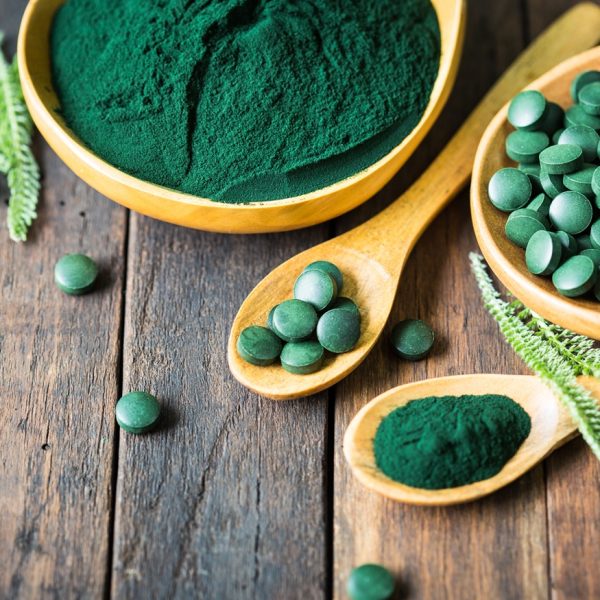Nutritionist and stress expert Charlotte Faure Green shares her knowledge and wisdom on burnout with an interesting interview.
What is burnout?

Burnout is a state of emotional, physical, and mental exhaustion caused by excessive and prolonged periods of stress. It manifests as low resilience, depression, cynicism, emptiness, feeling trapped, feeling ineffective, detached from the world, apathetic, insomnia and feelings of overwhelm.
As a term, it was originally used to describe the fallout from long-term stress caused by work, but a semantic shift and improved understanding means that we may apply it to any areas of life that cause such feelings of hopelessness.
Burnout goes beyond stress, it is a diminished capacity to deal with life’s stressors and needs urgent addressing for healing – it is essentially end-stage stress, cannot be sustained and, unlike stress, may feel never-ending and insurmountable to the sufferer.
How prevalent do you think it is? Why do you think it is so prevalent?
There are no official figures of burnout sufferers as whilst the WHO have recognised it as an official “syndrome” (related to workplace stress only), it is yet to make it to the DSM-5 as a medical diagnosis. It can only be a matter of time for it to be officially recognised as there is no doubt that burnout is on the rise, and incredibly impactful on the lives of sufferers.
There are many contributing factors to the rise in burnout:
- Poor sleep
- Reliance on devices/never switching off
- Changes in how we nourish our bodies
- Poor work/life balance
- Adverse childhood events
- Inability to say “no” and the glorification of busyness
- Money issues and lack of access to resources
In more recent times, Covid and the seemingly never-ending pandemic was (and is) one of those challenges that rendered us with little control. The reality for many is that their mental health has been challenged. In fact, the Centre for Mental Health UK predicts that up to 10 million people (almost 20% of the population) will need either new or additional mental health support as a direct consequence of the pandemic. This has, without doubt contributed to the sudden rise in burnout sufferers in recent times.
What are the most common symptoms you see?
- Onset and maintenance insomnia, and excessive daytime sleepiness
- Fatigue
- Food intolerances
- IBS
- Dysregulated blood sugar
- Low immunity/susceptibility to infection
- Headaches
- Unexplained pain
- Panic attacks
- Hypo arousal of the HPA (hypothalamic-pituitary-adrenal) axis – flattened cortisol curve
- Acne, psoriasis, eczema, and other skin disorders
- Brain fog and cognitive decline
How does food affect burnout?
Our diet has a huge impact on our physiology and nervous system response, thus our mental health. Whilst it’s not possible to simply eat oneself out of an anxious or burnt-out state, the potential for what we eat, or importantly what we don’t eat, and when and how we eat it, to influence our mental health is often seriously overlooked. How we eat is indicative of what is going on in our lives, and a lot of people’s eating habits have changed over the past two years of lockdown. The way we feel about food and our ability to nourish ourselves affects our mood and sense of self.
Allostatic load is defined as “wear and tear on the body” which accumulates as an individual is exposed to repeated or chronic stress, anxiety, or burnout. As food can affect burnout, so can burnout can affect how we absorb and respond to the food that we eat.
Increased output of our stress hormones and continued HPA-axis activation leads to systemic inflammation which can (amongst other things) drive food intolerances through altered tight junctures in the gut lining. Furthermore, dysregulated cortisol levels have been shown to affect the composition of bacteria in the gut.
Whilst structurally the same as the brain, our gut-derived serotonin has localised effects on the digestive system, such as the perception of nausea, pain and drives peristalsis (the rhythmical movement of the gut muscles to transport food through the tract). Whilst there is still much to be understood about the effect of peripheral serotonin on mood, what has been determined is that the production and release of serotonin from the enterochromaffin (EC) cells in the gut can be controlled by our gut bacteria.
Long term stress and burnout may impair our cell-mediated acquired immunity, leaving us more susceptible to viral, bacterial and yeast infections.
What habits contribute to burnout?
Staying up late
We have a wealth of streaming services at our fingertips, providing more incentive to stay up late. Screens emit blue light which interfere with our melatonin production, which means that when we do make it to bed after a series binge it takes us longer to fall asleep, and when we do drop-off, our sleep has less of the vitally restorative REM sleep stages. Sleep is so crucial to our mental and physical well-being that even the smallest sleep deprivation can have a deep impact.

Hooked on our devices
In this modern world we are always connected via our devices. Endless scrolling of Instagram feeds, designed to hook us in, and boundary-less colleagues and clients who see no harm in popping a “quick email” at midnight keep us in an aroused and stressed state. This is incredibly stimulating to our nervous system, putting us into flight-or-flight mode, which upregulates the production of stress hormones. Continued and chronic hyperarousal of our fight-or-flight response over time can lead to a freeze state, which some proponents of polyvagal theory believe to be similar to “burnout”.
Inability to say “no” and the glorification of busy
We now equate busyness to productivity and a characteristic of a successful life – often we have created this busyness to distract from our unfulfilled needs. We have designed our life to distract us from those uncomfortable feelings – we keep ourselves busy on social media, social engagements, in our work, and in our inability to say no, and it is stressful. The truth of the matter is that busyness does not result in greater productivity, and that busyness is contributing to a culture of continuous anxiety and stress.
Reaching for quick and easy foods
A typical western diet is nutrient-void and inflammatory to the body, and the mind. The western diet is rich in refined sugars, white and processed flours and simple carbohydrates, processed meats, and food additives, and contains low amounts of fibres, vitamins, minerals, complex carbohydrates and other plant-derived phytonutrients and antioxidants. When we are busy, stressed or suffering burnout, what’s on our plate and how we nourish our body might become an afterthought, or we may not have the capacity to think about how to eat to improve our well-being. Fast foods can become a go-to as it requires little thought, despite the detrimental effect it can cause.
What foods can we have that help with burnout?
Whilst we cannot merely eat ourselves out of burnout, we can certainly modulate what we eat and the way we eat it to lessen the physiological impact of burnout on the body, and by giving our brains all it needs to repair, provide ourselves with all the tools to begin healing. Highlighting specific foods that may have an impact on brain chemistry can be useful, yet when a person has reached burnout stage it may be more helpful to look at how they are eating as opposed to concentrating on nutrients specific to a handful of foods.

Marrying your macros
When carbohydrates are broken down and have been eaten alone or without sufficient fats and proteins, they cause a spike in blood sugar, the body uses this quick energy as accessible and immediate, followed by a quick drop. We are not only quickly hungry again as the insufficient energy has not sustained us, but this is an incredibly inflammatory process for the body. This is blood sugar imbalance or the “Blood Sugar Rollercoaster” and it’s not a ride we want to be on. Our body tries to reach homeostasis, and to do so releases cortisol – our stress hormone. So, ensuring you are pairing carbohydrates (preferably complex) with good fats and proteins will slow the rate of absorbency, and breakdown of sugars.
Avoiding fasting/eating regular meals
Our body doesn’t know why there’s a lack of food by design, it just knows that it must prioritise the search for it and scarcity of food is a stressor for our body. Too much circulating cortisol diminishes our ‘non-essential’ functions such as hair growth, libido, our reproductive system and sleep, because our body doesn’t know it’s truly safe to conceive or sleep under all this threat and escaping the stressor is priority.
A diverse range of foods
An ‘ecosystem’ of varied bacteria greatly impacts our mental. Different bacterial strains perform diverse beneficial functions, and each strain thrives off the consumption of different foods. Complex carbohydrate plant foods provide fibre as an important cornerstone of our diet. Our bodies do not have the enzymes to digest these – that is a job for our gut flora. These prebiotic foods nourish the good bacteria in our gut which are responsible for producing many of our mood-supportive neurotransmitters.
A Mediterranean diet
The Mediterranean diet has long been associated with a reduction in the risk of depression, and now emerging research shows that it may be a useful tool in the prevention or treatment of burnout. A diet rich in a variety of vegetables (including dark leafy green), fruits (including berries for their antioxidant power), legumes, nuts, seeds, whole grains, olive oil, oily fish and a low intake of highly processed food and red meat, reduces inflammation and provides nutrients that are depleted when mental health is challenged. Stress is nutritionally very expensive on the body, so replenishing these stores is vital in healing.
Staying hydrated
Dehydration can mimic feelings of anxiety or panic; our bodies can feel fatigued and our brains sluggish. Our blood is 92% water, and so the smallest decrease can cause blood pressure to drop. Our bodies like homeostasis, so will create alarm (increased stress hormones) to alert us to the imbalance. Staying hydrated is the quickest and easiest win for our mental and physical health, and easy to forget when in a burnt-out state.
What habits can we adopt to help burnout?
- Improved boundary setting and learning to say “no”
- Prioritising deep rest to heal
- Ensuring that at least 2 out of 3 meals per day are nutritionally dense
- Setting limits on our device usage
- Daily movement, even just a short walk
- Forest bathing and getting out in nature to increase GABA
- Assess and act upon any nutritional deficiencies in the body
- Improve gut health
- Daily movement, even just a short walk
- Taking time to eat undistracted to improve digestion
- Practice good sleep hygiene
- Avoid reliance on alcohol and limit intake
Any advice for people who don’t like/ haven’t got the time to cook?
Self-forgiveness is key here. Whilst nutrition is a very important part of the healing process, it is not the only component of recovery. Not everyone loves to cook, or has the time, means or access to resources to create nutritious meals from scratch every day – a lot can be done with convenience foods and combining cheaper products. Asking for help, from either partners, friends, or local resources such as food banks and charities may prove beneficial. The rise in austerity has meant that there are some wonderful free food sharing apps that have emerged in recent years and contacting your local welfare group may point you in the direction of valuable resources in your community.
Any words on preventative medicine, and thoughts on your philosophy behind healing?
The adage “prevention is better than cure” is certainly true when it comes to burnout. Recognising the warning signs of stress and taking preventative measures to mitigate its impact can prevent the transition to burnout. This isn’t always possible, often times we cannot remove ourselves from a chronic stressor before it is too late. When one has reached burnout, recognising that healing is not linear but rather undulating over time, is very important.
Often when we are at rock bottom, we can feel impatient to be better, and steps back can feel like colossal failure. Reminding oneself of the process and trusting in it will give the impetus to continue even when it feels hard. Understanding that as humans we are designed to heal and are always in a state of flux – whilst not everyone has the capacity to be fully cured (trauma will always leave its mark), everyone has the capacity to heal.
References
- Castro-Sepulveda, M., Ramirez-Campillo, R., Abad-Colil, F., Monje, C., Peñailillo, L., Cancino, J. and Zbinden-Foncea, H., 2018. Basal Mild Dehydration Increase Salivary Cortisol After a Friendly Match in Young Elite Soccer Players. Frontiers in Physiology, 9.
- Centreformentalhealth.org.uk. 2022. Covid-19 and the nation’s mental health: October 2020 | Centre for Mental Health. [online] Available at: <https://www.centreformentalhealth.org.uk/publications/covid-19-and-nations-mental-health-october-2020> [Accessed 9 February 2022].
- Chellappa, S., Steiner, R., Oelhafen, P., Lang, D., Götz, T., Krebs, J. and Cajochen, C., 2013. Acute exposure to evening blue-enriched light impacts on human sleep. Journal of Sleep Research, 22(5), pp.573-580.
- Christ, A., Lauterbach, M. and Latz, E., 2022. Western Diet and the Immune System: An Inflammatory Connection.
- Esquivel, M., 2020. Nutrition Strategies for Reducing Risk of Burnout Among Physicians and Health Care Professionals. American Journal of Lifestyle Medicine, 15(2), pp.126-129.
- Generoso, J., Giridharan, V., Lee, J., Macedo, D. and Barichello, T., 2021. The role of the microbiota-gut-brain axis in neuropsychiatric disorders. Brazilian Journal of Psychiatry, 43(3), pp.293-305.
- Loopstra, R., Lambie-Mumford, H. and Fledderjohann, J., 2019. Food bank operational characteristics and rates of food bank use across Britain. BMC Public Health, 19(1).
- Marik, P. and Bellomo, R., 2013. Stress hyperglycemia: an essential survival response!. Critical Care, 17(2), p.305.
- McEwen, B., 1993. Stress and the Individual. Archives of Internal Medicine, 153(18), p.2093.
- Morey, J., Boggero, I., Scott, A. and Segerstrom, S., 2015. Current directions in stress and human immune function. Current Opinion in Psychology, 5, pp.13-17.
- Mozaffarian, D., 2016. Dietary and Policy Priorities for Cardiovascular Disease, Diabetes, and Obesity. Circulation, 133(2), pp.187-225.
- Nakamura, Y., Walker, B. and Ikuta, T., 2016. Systematic review and meta-analysis reveals acutely elevated plasma cortisol following fasting but not less severe calorie restriction. Stress, 19(2), pp.151-157.
- Queen, D. and Harding, K., 2022. Societal pandemic burnout: A COVID legacy.
- Tähkämö, L., Partonen, T. and Pesonen, A., 2018. Systematic review of light exposure impact on human circadian rhythm. Chronobiology International, 36(2), pp.151-170.
- Zong, Y., Zhu, S., Zhang, S., Zheng, G., Wiley, J. and Hong, S., 2018. Chronic stress and intestinal permeability: Lubiprostone regulates glucocorticoid receptor‐mediated changes in colon epithelial tight junction proteins, barrier function, and visceral pain in the rodent and human. Neurogastroenterology & Motility, 31(2), p.e13477.
































